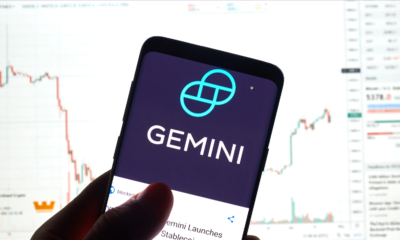Altcoin
KuCoin to Enforce 7.5% VAT on Fees for Nigerian Users from July 8

KuCoin cryptocurrency exchange announced the implementation of a 7.5% value-added tax (VAT) on transaction fees. This new tax affects users in Nigeria who have completed their Know Your Customer (KYC) registration. Starting from July 8, this VAT will be added to the transaction fees, not the overall transaction volume.
KuCoin to Apply VAT on Nigerian Fees
The new VAT policy by KuCoin directly targets transaction fees, increasing the cost for Nigerian traders on the platform. Despite the clarity on the calculation basis, applying VAT amid the ongoing government ban on crypto websites, including KuCoin, raises questions. Nigeria’s crypto community stakeholders have expressed concerns regarding this decision’s timing and regulatory implications.
Lucky Uwakwe, President of the Blockchain Industry Coordinating Committee of Nigeria (BICCoN), highlighted potential challenges in enforcing the new tax. He questioned how the government would verify user counts, ensure accurate trade reporting, and manage the remittance of collected taxes. The lack of clear guidelines on these fronts could lead to complications in compliance and transparency.
The constraints imposed by the Central Bank of Nigeria (CBN) on converting cryptocurrencies to fiat currencies add another layer of complexity. Given these financial restrictions, it remains uncertain how KuCoin intends to remit the VAT collected. This scenario poses a dilemma on whether banks would handle crypto-related transactions under current policies.
Also Read: CoinDCX Acquires BitOasis To Foray Into MENA Region
CBN Ban Limits Nigeria’s Crypto Growth
KuCoin’s introduction of VAT on crypto transactions might indicate a shift in governmental attitudes toward recognizing digital assets. Rume Ophi, a local crypto analyst, views the VAT levy as a positive step that could lead to the formal acceptance of cryptocurrencies as legitimate financial instruments in Nigeria. He suggests that this move might pave the way for future regulations and licensing within the crypto industry.
However, the continued prohibition by the CBN, initiated in 2021, remains a significant barrier. This restriction has discouraged local crypto exchange development, pushing industry players to seek more favorable conditions abroad. Ophi lamented the missed opportunities due to stringent government actions, which have stifled the growth of the nascent crypto industry in Nigeria.
There is speculation that this tax could be a precursor to more comprehensive crypto regulations. Such measures allow banks to facilitate crypto trades, expanding the scope beyond peer-to-peer transactions. However, clarity on this matter has yet to be provided, leaving room for speculation among users and stakeholders.
Also Read: XRP Lawsuit: Lawyers Claim Ripple Case Is In SEC Favor, Chevron Ruling Irrelevant
The presented content may include the personal opinion of the author and is subject to market condition. Do your market research before investing in cryptocurrencies. The author or the publication does not hold any responsibility for your personal financial loss.














✓ Share: